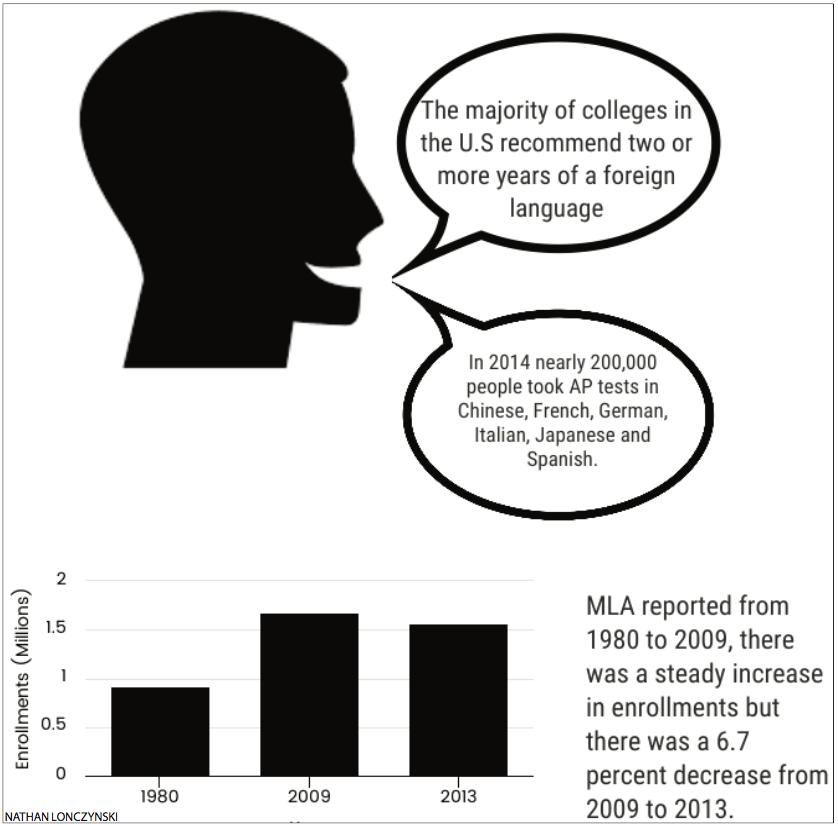Colleges prefer high school foriegn language courses
Learning a second language is a requirement for receiving a diploma in Michigan. House Bill 4465 (passed in 2006) requires all students to take a minimum of two years of a foreign language in order to graduate from high school.
However, colleges and universities considered selective by the College Board, like the University of Michigan, recommend four years.
But there’s a catch: according to counselor Barbara Skelly, undergraduate schools prefer students take foreign language classes in high school because they’re more “rigorous.” This means students who start foreign language education in middle school and end it before senior year are potentially disadvantaged.
Because many students begin their foreign language education in middle school, German teacher Susan Sipos emphasizes that students continue to partake in foreign language classes. She said there are more advantages to learning a second language than just fulfilling graduation requirements. One of them is foreign language-based scholarships, which Sipos earned several of.
“There’s a lot of money available for people who want to study other languages,” Sipos said. “I think it’s good to take several languages if you can invest a lot of time in each one.”
If a student plans to attend a selective school but has reached the maximum level of a language offered by GPPSS, then they have the option to dual enroll.
Under Section 21B of the State School Aid Act and Public Act 160 of 1991, a high school-age student may attend his or her high school and also enroll in a public or private Michigan postsecondary institution, which is referred to as dual enrollment. A student must have taken the High School Michigan Merit Exam prior to applying and earned at least an endorsement on the test in the area of postsecondary study to qualify.
Alumna Sarah Cherry dual enrolled in Spanish her senior year because she started taking the language in middle school and reached the maximum level during her junior year. She said the district paying for her attendance and becoming an outlier were upsides to dual enrollment.
“I want to go to medical school, and it gives me an upper hand if I am fluent in another language,” she said. “It definitely will affect me because they’re always looking for people who can speak a foreign language because you never know when you’re going to encounter that situation where you need to know a different language.”
Although junior Lauren Sickmiller’s foreign language credits transferred to her high school transcript, she will be in the same situation as Cherry. She wants to pursue French but said she might take an online class instead.
“I’m still trying to decide what I’m going to do,” Sickmiller said. “There might be online classes I can take here next year, but I don’t think I’m going to drive to a college (for dual enrollment).”
Skelly said if students prolong their foreign language educations, they can earn college credit by taking college-level courses. She said dual enrollment and online classes can help students gain those credits.
College credits are advantageous, but Sipos said getting more knowledge about other cultures is also important. She wants students to take advantage of the opportunities offered so that they are more aware of other lifestyles and less focused on finance.
“For me, learning language changed my life entirely. That’s what I hope for my students, too. I think that having the chance to go some place else and meet other people … causes you to reflect on yourself, and that’s what I think you really get out of learning another language,” she said. “It has been such an asset, and it’s made my life so interesting because I know people from all over the world, and when I see the news for one thing, I can follow events from the American point of view. But, then I can also watch them in other languages and see a totally different perspective on what’s happening in the world.”












